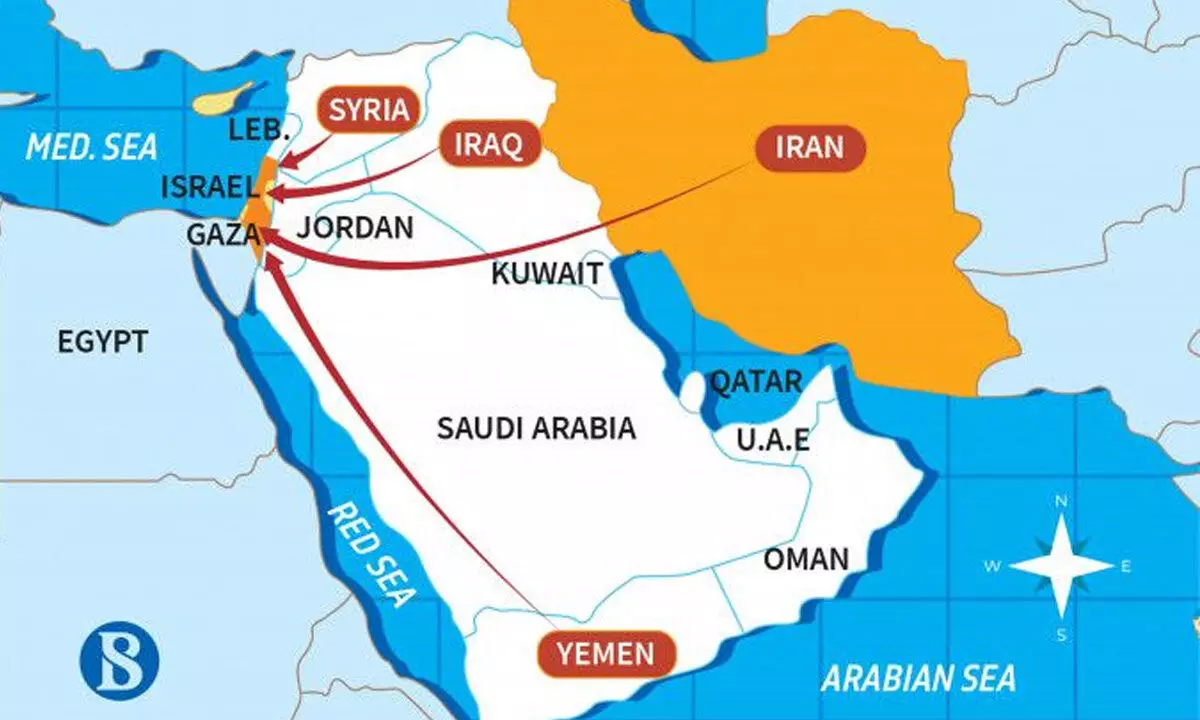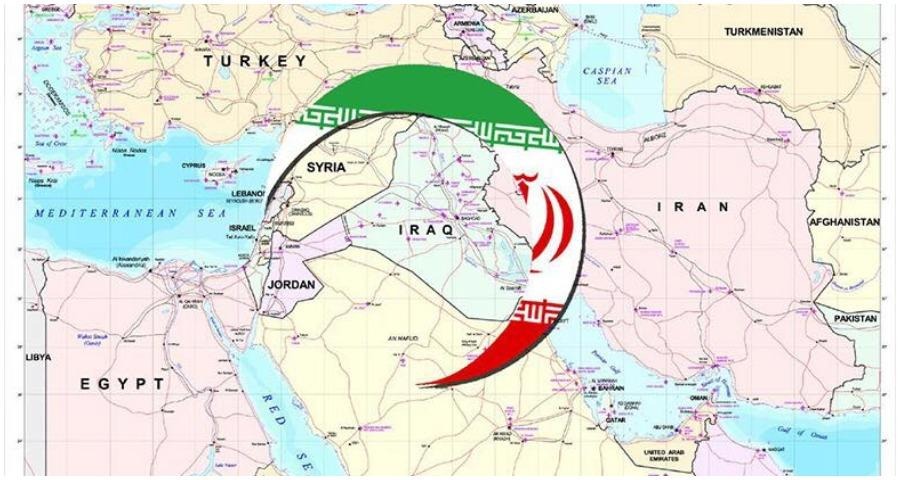Historical Context and Relationship

The Iran-Israel conflict is a complex and multifaceted issue with roots deeply embedded in history, religion, ideology, and geopolitics. Understanding its origins and evolution is crucial to grasping the current tensions between these two nations.
Historical Origins of the Conflict
The roots of the Iran-Israel conflict can be traced back to the early 20th century, when the Zionist movement began advocating for the establishment of a Jewish homeland in Palestine. This aspiration conflicted with the aspirations of the Palestinian Arab population, who saw the land as their own. The conflict escalated after World War II, when the British mandate over Palestine ended, leading to the 1948 Arab-Israeli War and the establishment of the State of Israel.
Evolution of the Relationship
The relationship between Iran and Israel has been marked by periods of cooperation and tension. In the early years after the establishment of Israel, Iran was one of the few Muslim-majority countries to maintain diplomatic relations with the Jewish state. This changed in 1979, with the Iranian Revolution, which brought to power the Islamic Republic led by Ayatollah Ruhollah Khomeini. Khomeini was a vocal critic of Israel and supported Palestinian resistance against the Jewish state.
Role of Religion, Ideology, and Geopolitics
Religion, ideology, and geopolitics have played significant roles in shaping the Iran-Israel conflict. The conflict is often framed in religious terms, with both sides claiming divine legitimacy for their claims to the land. Iran, under the Islamic Republic, views Israel as an illegitimate state created by Western powers and a threat to the Muslim world. Israel, on the other hand, sees itself as a beacon of democracy and a bulwark against Islamic extremism in the Middle East.
Perspectives of Iran and Israel
Iran and Israel have vastly different perspectives on the conflict. Iran sees Israel as a colonial entity that has occupied Palestinian land and has committed human rights abuses against Palestinians. Iran supports various Palestinian militant groups, including Hamas and Hezbollah, and has vowed to destroy Israel. Israel, on the other hand, views Iran as a state that sponsors terrorism and seeks to develop nuclear weapons. Israel has accused Iran of supporting militant groups in the region and has carried out airstrikes against Iranian targets in Syria.
Political and Diplomatic Issues

The Iran-Israel conflict is deeply rooted in political and diplomatic issues, shaping a complex and often tense relationship between the two nations. These issues stem from historical grievances, ideological differences, and competing regional ambitions, further complicated by the involvement of international actors.
Role of International Actors, Iran israel
The Iran-Israel conflict has attracted significant international attention, with various actors playing crucial roles in shaping the dynamics of the relationship. The United States, Russia, and the European Union have all been involved in mediating, influencing, or exacerbating the conflict.
- The United States has historically been a strong supporter of Israel, providing substantial military and financial aid. This support has been a source of tension with Iran, which views the United States as biased in favor of Israel. The US has also imposed sanctions on Iran, particularly regarding its nuclear program, which has further strained relations.
- Russia, on the other hand, has maintained close ties with both Iran and Israel. While Russia has condemned Iran’s nuclear program, it has also sought to strengthen its relationship with Iran, particularly in the areas of defense and energy. Russia’s involvement in Syria, where both Iran and Israel have interests, has further complicated the regional dynamics.
- The European Union has sought to play a more neutral role in the conflict, advocating for dialogue and diplomacy between Iran and Israel. The EU has also been involved in efforts to address the Iranian nuclear program, including the Joint Comprehensive Plan of Action (JCPOA), commonly known as the Iran nuclear deal.
Impact of the Iran Nuclear Deal
The JCPOA, signed in 2015, aimed to curb Iran’s nuclear program in exchange for the lifting of international sanctions. The deal was a significant diplomatic achievement, but it also generated controversy. Israel was a vocal critic of the agreement, arguing that it would not prevent Iran from developing nuclear weapons and would ultimately empower the Iranian regime.
- The Trump administration withdrew the United States from the JCPOA in 2018, re-imposing sanctions on Iran. This move was widely condemned by the international community, including many European allies. The withdrawal of the US from the deal further strained relations between Iran and Israel, as Israel viewed it as a victory and a sign of US support for its position.
- The Biden administration has expressed its desire to return to the JCPOA, but negotiations have been slow and complex. Israel has continued to express its concerns about the deal, urging the US to adopt a tougher stance on Iran. The future of the JCPOA remains uncertain, but its impact on the Iran-Israel relationship will continue to be significant.
Current State of Political and Diplomatic Relations
The current state of political and diplomatic relations between Iran and Israel is characterized by deep mistrust and hostility. There is no formal diplomatic relationship between the two countries, and they have engaged in a series of proxy conflicts in the region.
- Israel has accused Iran of supporting terrorist groups in the region and of attempting to destabilize its borders. Iran, in turn, has accused Israel of being a threat to its security and of interfering in its internal affairs. These accusations have fueled a cycle of hostility and suspicion, making it difficult to find common ground.
- Despite the tensions, there have been some limited efforts to de-escalate the conflict. In recent years, there have been reports of secret negotiations between Iran and Israel, aimed at reducing the risk of direct confrontation. However, these efforts have been largely unsuccessful, and the overall relationship remains highly volatile.
Military and Security Dimensions: Iran Israel

The military and security dimensions of the Iran-Israel relationship are characterized by a complex interplay of factors, including historical animosity, ideological differences, and the pursuit of regional dominance. This section delves into the military capabilities and strategies of both countries, analyzes the potential for military conflict, and explores the role of regional powers in shaping the military balance.
Military Capabilities and Strategies
Both Iran and Israel possess formidable military forces, equipped with advanced weaponry and sophisticated technologies. Iran’s military strategy is largely defensive, emphasizing deterring external threats and protecting its vital interests. It relies on a combination of conventional forces, asymmetric warfare tactics, and a robust ballistic missile program. Israel, on the other hand, maintains a highly offensive military doctrine, emphasizing preemptive strikes and the swift suppression of threats. Its military capabilities are renowned for their technological sophistication and operational efficiency.
Potential for Military Conflict
The potential for military conflict between Iran and Israel remains a significant concern. The two countries have engaged in proxy wars and covert operations for decades, and tensions have escalated in recent years. Possible scenarios for conflict include:
- An Israeli airstrike targeting Iranian nuclear facilities.
- An Iranian missile attack on Israeli cities or military bases.
- A clash between Iranian-backed militias and Israeli forces in Syria or Lebanon.
The outcome of any conflict would likely be devastating for both sides, with the potential for regional escalation and international repercussions.
Regional Powers and the Military Balance
Regional powers such as Saudi Arabia and Turkey play a significant role in shaping the military balance between Iran and Israel. Saudi Arabia, a staunch ally of Israel, has been actively modernizing its military and seeking closer cooperation with Western powers to counter Iranian influence. Turkey, while maintaining close ties with Israel, has also cultivated strong relations with Iran, acting as a potential mediator between the two rivals.
Impact on Regional Security and Stability
The ongoing tensions between Iran and Israel have a profound impact on regional security and stability. The threat of conflict creates a climate of uncertainty and fear, undermining economic development and hindering diplomatic efforts to resolve regional disputes. The proliferation of weapons and the escalation of proxy wars further exacerbate the situation, making the region more volatile and prone to instability.
Iran israel – The complex relationship between Iran and Israel has implications far beyond the Middle East. Tensions between the two nations have been a source of global concern, and the potential for conflict remains a constant threat. Minnesota Governor Tim Walz has spoken out on the issue, highlighting the need for diplomatic solutions and emphasizing the importance of stability in the region.
The situation in the Middle East continues to be a delicate balancing act, requiring careful consideration of all involved parties and their interests.
The geopolitical tensions between Iran and Israel often overshadow the shared passion for sports that unites both nations. While their governments may be at odds, athletes from both countries strive for excellence on the international stage, demonstrating the unifying power of sport.
This is evident in the sport climbing combined Olympics live , where athletes from across the globe, including Iran and Israel, compete on an equal footing, showcasing the universal language of athleticism and pushing the boundaries of human potential.
In this realm, the rivalry between Iran and Israel takes a backseat, replaced by the shared pursuit of victory and the spirit of sportsmanship.